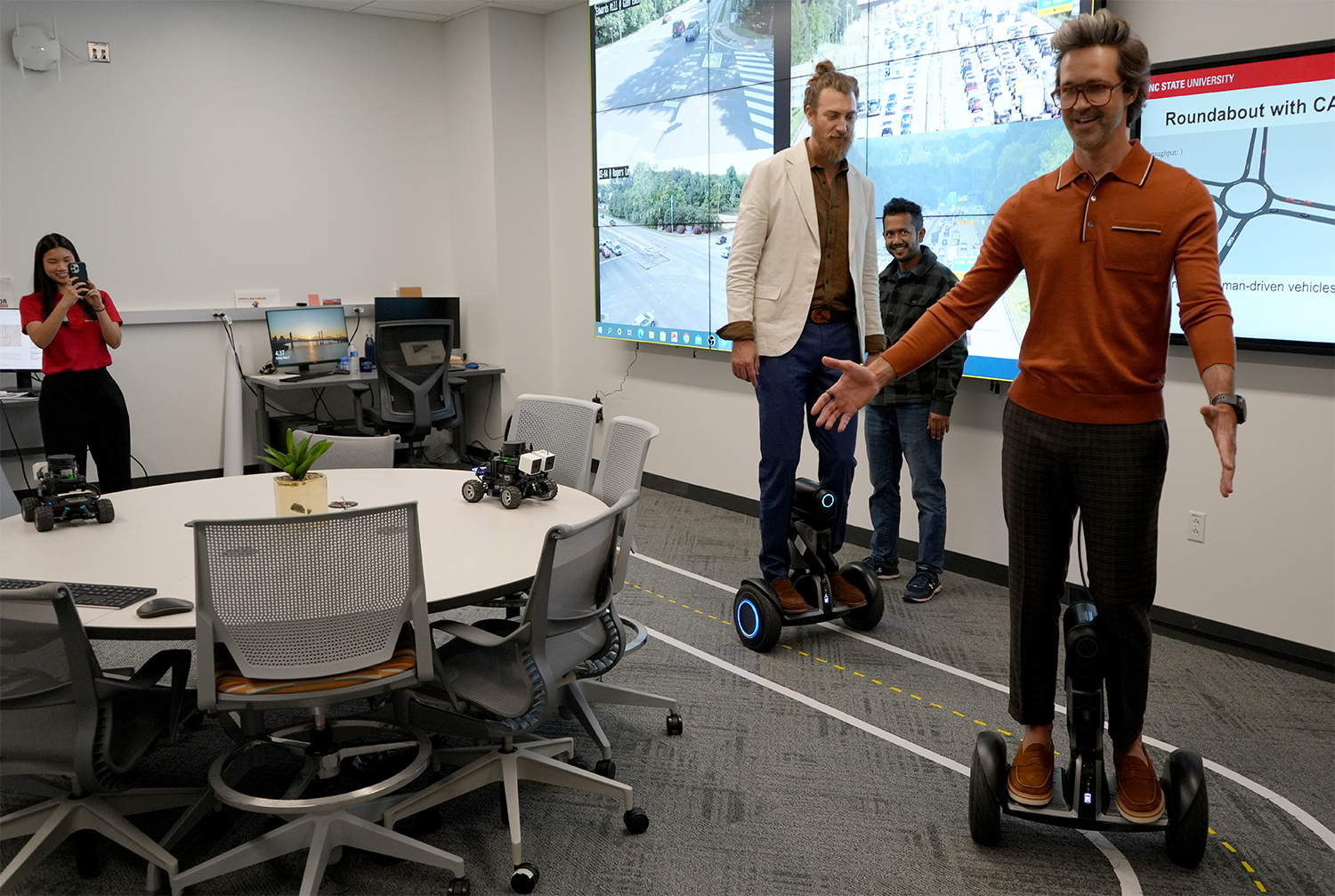A new way to learn
Computer science faculty members will lead a research center on AI in education.

In Crystal Island: EcoJourneys, a narrative-based virtual learning environment designed by researchers in NC State’s Department of Computer Science (CSC), middle school students travel to a fictional island in the Philippines.
While there, they encounter a dilemma: a local fish farm is reporting that tilapia are becoming sick at an alarming rate. It’s a complex problem that is more than a single student can solve on her own.
The students, who are physically located together in a classroom with their teacher, are each assigned a unique path within EcoJourneys to explore the virtual environment and engage with the problem scenario. Along the way, they learn about ecosystems and the impacts cyanobacterial algal blooms are having around the world. They also gain valuable experience in working collaboratively toward a solution.
NC State researchers have been working for years on using artificial intelligence (AI) capabilities to enhance the field of education by supplementing human teacher-pupil interactions in a way that is customizable and scalable. Through the Center for Educational Informatics (CEI), housed in CSC, interdisciplinary teams of faculty members design and develop next-generation adaptive learning environments like EcoJourneys and conduct foundational research on technology-rich learning.
Now, the National Science Foundation (NSF) is furthering that effort with a five-year, $20 million grant that will establish a new research initiative that is led by NC State and aimed at creating AI tools to advance human learning and education for a wide variety of audiences.
The investment is part of a broader effort by NSF to advance our understanding of AI technologies and how they can drive innovation to address real-world challenges; the agency has announced the creation of 18 National Artificial Intelligence Research Institutes over two years.
“We have been designing, developing and implementing AI technologies for education for many years,” said James Lester, principal investigator of the new institute, director of CEI and Distinguished University Professor of Computer Science at NC State. “The new NSF AI Institute for Engaged Learning will leverage our work, and that of our collaborators, to develop new tools that radically improve human learning and education.”
In addition to NC State, the new institute will include researchers from Indiana University, the University of North Carolina at Chapel Hill, Vanderbilt University and the educational non-profit organization Digital Promise.
The National Academy of Engineering named Advancing Personalized Learning as one of its 14 Grand Challenges for Engineering in the 21st century, recognizing a global need to personalize instruction in a way that is tailored to an individual student’s learning needs.
Collaborative approach
The institute will focus on three areas that complement each other.
First, the institute will create AI platforms that generate interactive story-based problem scenarios that foster communication, teamwork and creativity as part of the learning process.
Second, the institute will create AI characters capable of communicating with students through their speech, facial expression, gesture, gaze and posture. These characters, or “agents,” will be designed using state-of-the-art advances in AI research to foster interactions that engage students effectively in the learning process.
Lastly, the institute will create a sophisticated analytics framework that analyzes data from students in order to make the tools truly interactive. In other words, the system will be able to customize educational scenarios and processes to help students learn, based on information the system collects from the conversations, gaze, facial expressions, gestures and postures of students as they interact with each other, with teachers, and with the technology itself.
Researchers involved with the institute will be working with a broad range of stakeholders, including schools, museums and non-profit organizations. Through prior projects, CEI researchers have built a broad network of collaborators and schools willing to participate in research and help implement new, cutting-edge technologies in the classroom.
This collaborative approach is designed to ensure that the institute creates tools that can be used to meet educational goals while also ensuring that its AI-driven learning environments are ethically designed and promote diversity, equity and inclusion.
“All of our activities in the new institute will include a strong focus on ethics,” Lester said. “We create effective educational tools that are informed by considerations of fairness, accountability, transparency, trust and privacy.
“Our work at the CEI has demonstrated that AI tools can be tremendously valuable in supporting education. But they do not exist in a vacuum, and we know how important it is to ensure that we are working with teachers, students and other community members to develop tools that meet their expectations in terms of safety, respect and privacy.”
The goal is not to replace classroom teachers, but to enhance their work.
There is an enormous body of evidence showing that the best educational outcomes come from one-on-one interaction between a human tutor and a human learner. Unfortunately, that’s not scalable.
With AI, students can receive that individual instruction with a virtual tutor. In the classroom, teachers using new technologies will have access to more information on how individual students are progressing and where they are getting stuck. Armed with this data, they can develop adaptive learning environments that are not one size fits all and offer individual attention in ways that weren’t possible before.
“We’re talking about providing powerful tools, along with training and professional development, that will allow teachers to really up their game in the classroom,” said Eric Wiebe, a professor in STEM (science, technology, engineering and math) at NC State and a longtime CEI collaborator.
- Categories:


